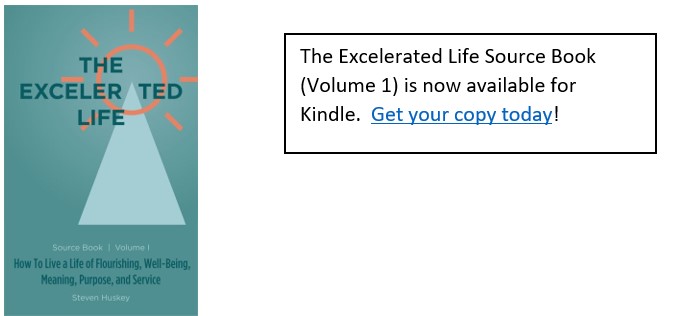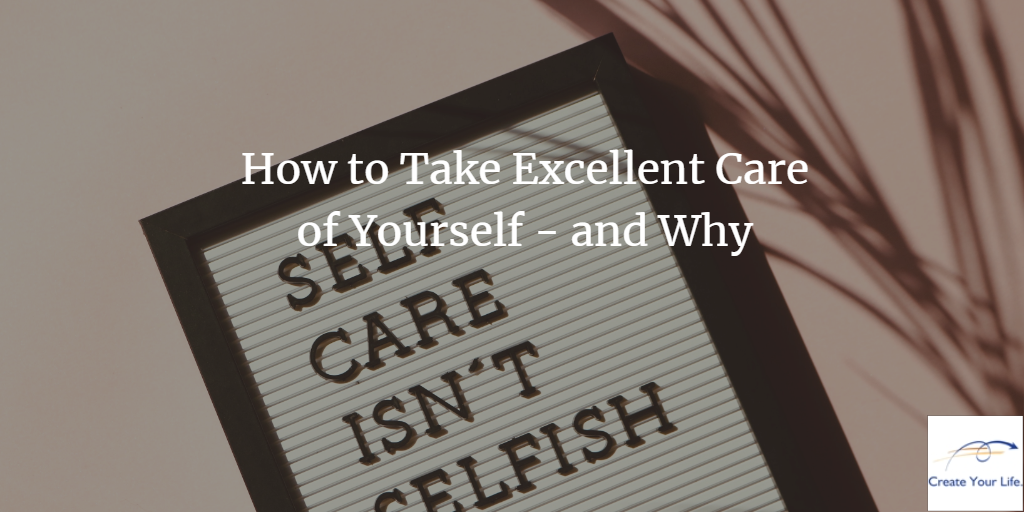If you are to give your best in Service to the world, you have to be at your best. That’s why self-care is important. Excelerated Selffullness™ is one of the steps to help you be your best.
The Cobbler’s Shoes
Once upon a time, there was a shoemaker. He was the only cobbler in a large village so he had the responsibility of keeping all the villagers’ shoes and boots in good condition. However, he became so busy that he didn’t have time to repair his own boots. Initially, this didn’t pose a problem, but over time, his shoes became more and more worn down and began to fall apart.
As he worked tirelessly to keep everyone else’s shoes in good repair, because of the poor condition of his own shoes he developed sores on his feet. He began to walk with a painful limp. His customers expressed concern over his condition, but he assured them everything was fine. He was just too busy to think about himself.
It wasn’t too many years, though, until the shoemaker’s feet were in such poor shape, he could barely walk, and could no longer work. Now, all the villagers’ shoes began to wear out and fall apart. Before long, everyone in the town developed painful sores on their feet and limped in pain. And all because the shoemaker never took the time to repair his own shoes. [1]

Selfful or Selfish?
This story gives a good example of why self-care is important. The cobbler thought he was being selfless by ignoring his own needs, and in a sense he was. But his selflessness started to look more like selfishness as the other villagers began to suffer as a direct cause of his lack of self-care. If the cobbler had been more selfful, everyone would have been better off.
In Four Thousand Weeks, Oliver Burkeman writes about a perspective on life that he calls “pathological productivity”. [Burkeman] From this viewpoint, anything on which we spend our time that isn’t creating some type of value is considered by us as wasted time. Taking care of our own needs, repairing our own shoes, isn’t important from this point of view. We look at it as a waste of time. But this is a short-term view and incorrect in the long run.
Just as the cobbler was, we can be hesitant to take the time we need to care for ourselves. But it’s important to understand the difference between being selfish and being selfful. To be selfish is to put one’s own needs and desires ahead of others. We think that the opposite of selfish is selfless – having no concern for ourselves, always putting the needs of others first. But as we now see, selflessness is not always in the best interest of others.
Instead, think about the word selfful. When we are selfful, we take care of ourselves as well as caring for those around us. We take steps to keep our own resources filled so that we can use those resources to serve others. We do this through self-care.
Why Self-Care Is Important
When the cobbler failed to take care of his own shoes, he eventually began to have problems with his feet. When we are lacking in self-care, we are more likely to focus on the negative aspect of our lives, to see only problems. We “literally see a more negative reality, and one that we feel we have less ability to change.” [Achor]
The cobbler’s feet failed to provide a strong foundation for him. Similarly, we need to understand why self-care is important in providing a good, solid, level foundation. Everything to come goes on top of the foundation. A strong personal foundation is the basis upon which you can build a satisfying and fulfilling life. In order to create an Excelerated Life™ – a life of flourishing, of well-being, meaning, purpose, and Service – you must begin on a solid foundation. And that requires adequate selffulness.
The Two Easies
You must remain mindful of your self-care because of the “two easies”: easy to do and easy not to do. We return to this again and again with Jim Rohn’s two easies. The things that are easy to do are also easy not to do.
Sometimes it appears that we or others are getting away with unhealthy choices and bad habits. But that is an illusion. Because our choices – good and bad – aggregate and compound over time, it may take a long while before the damage becomes apparent. But, when it does show up, “it’s significant damage. And the remainder of a lifetime may not be enough to deal with the ill effects.” [Leonard]
To take good care of yourself requires attention and action. When you understand why self-care is important, you are motivated to increase your selffulness. So here are a few self-care areas to pay attention to and some suggestions for how you can put them into action.
Selffulness Checklist
The Fundamentals. Naturally, we must start with the fundamentals of eating, moving, and sleeping. These are pretty much non-negotiable. Most of us can eat a healthier diet and add a little more activity. However, for many of us, getting enough sleep is hard to come by. If that describes you, at least part of the time, I encourage you to find ways to improve your sleep.
Meditation. “Meditation is proof that it doesn’t take a ton of time to do a mind and body good. Just a few minutes of quieting your mind can help relieve stress.” [Felman] In a study of the effects of regular meditation, Barbara Fredrickson discovered that meditation provides a variety of benefits to “broaden and build” in one’s life. [Fredrickson]
Here are a couple of ways to add this important self-care practice to your day. (1) Do a short 5 – 10-minute meditation immediately upon arising, before you engage with your smartphone or other electronics. Using this time to relax and quiet your mind sets a positive tone for the day. (2) Learn a loving-kindness meditation and practice it regularly.

Spend time in nature. “Taking a walk in the countryside,” writes Oliver Burkeman, is “a good example of what the philosopher Kieran Setiya calls an ‘atelic activity'”, that is, an activity that we value just for the sake of doing it, whose value “isn’t derived from its telos, or ultimate aim.” [Burkeman]
Spending time outdoors improves your mental and your physical health. And it’s a great way to increase your activity, per the fundamentals. Go outside for a walk, work in the yard, or play a game with your kids or grandkids. As a bonus, spending time outside can improve your sleep.
Express gratitude. This is one of the earliest of the “happiness interventions” discovered by positive psychologists. We are shaped by sound evolutionary reasons to be more attuned to the negative aspects of our environment than to the positive ones. Many of the dangers lurking in our past are no longer a threat, but we are still on alert. To offset this negative influence, you can train yourself to be mindful of the positive conditions in your life, by expressing gratitude daily. Keep a running list of “three good things” where you list each day three positive experiences or things you are grateful for (and why you are grateful). And remember to be grateful for the “challenges” you face as well, for the strength and growth they bring.
Connect. You may do this as a part of your meditation or you may do it as a separate exercise. Connect with God, or Spirit, or the Universe. Connect with the God outside of yourself and the God within. Connect with your place in nature and in the world. See the connection between yourself and all the others in your life — those you know and those you don’t know but who are connected nevertheless.
Small Simple Daily Disciplines
The Excelerator Jump Start™ – Selffulness: Taking Excellent Care of Yourself is a good place to begin. This Excelerator Jump Start™ provides quick actions you can take to begin taking excellent care of yourself right now.
Small, simple daily disciplines repeated consistently over time add up to success. Begin today to take excellent care of yourself by taking one small step. Pick the one activity from the Excelerator Jump Start™ – Selffulness that appeals to you the most. Find a way to do that small step today. Then do it again tomorrow. And the next day. And the next. And . . .
You Can’t Give What You Don’t Have
Now, over to you. Look at your own self-care practices. Take a few minutes and think about these questions.
- Do you take time for yourself?
- How do you care for your physical health?
- How are you taking care of your mental and emotional health?
- What are you doing to care for your relationships?
- How do you see to your financial well-being?
- How about your career?
Why not take the time to reassess how well you are caring for your most important asset . . . you? Taking excellent care of yourself isn’t selfishness but selffulness . . . filling yourself up from the inside. You must care for yourself if you are to be able to care for others. Remember the command to “love your neighbor as yourself”? This presumes that you have love for yourself in the first place. You cannot give away that which you do not have.
If you are to give your best in Service to the world, you have to be at your best. Excelerated Selffullness™ is one of the steps to help you be your best. And it’s one of the steps for embracing your Excelerated Life™!
(Please NOTE: I am neither a medical professional nor a licensed counselor. If you suffer from any health issues and/or before you make major changes in your health maintenance, consult with a qualified medical professional.)
Why is selffulness and self-care important to you?
What is one thing you could do to improve yours?
Share your ideas by leaving a post below.
Excelerated Selffulness™ — taking excellent care of yourself — is one step in creating your Excelerated Life™, a life of flourishing and well-being, and a life of meaning, purpose, and service.
Read more about the Excelerated Life™.
Footnotes:
[1] Adapted from “Taking Care Of Yourself”. See Resources.
Resources:
Achor, Shawn. The Happiness Advantage. New York: Crown Publishing Group, 2010.
Burkeman, Oliver. Four Thousand Weeks: Time Management For Mortals. New York: Farrar, Straus and Giroux, 2021.
Felman, Adam. “25 Science-Backed Ways to Take Better Care of Yourself.” Greatist. Greatist a Red Ventures Company,. Web. June 7, 2020.
https://greatist.com/happiness/ways-to-practice-self-care#1
Fredrickson, Ph.D., Barbara, L. Positivity. New York: Crown Publishing Group, 2009.
Leonard, Thomas. The 28 Laws Of Attraction. New York: Scribner, 1998.
“Taking Care Of Yourself.” Learn Something New! Learn Something New!,. Web.November 21, 2022.
http://www.dailytenminutes.com/2016/07/story-taking-care-of-yourself.ht


